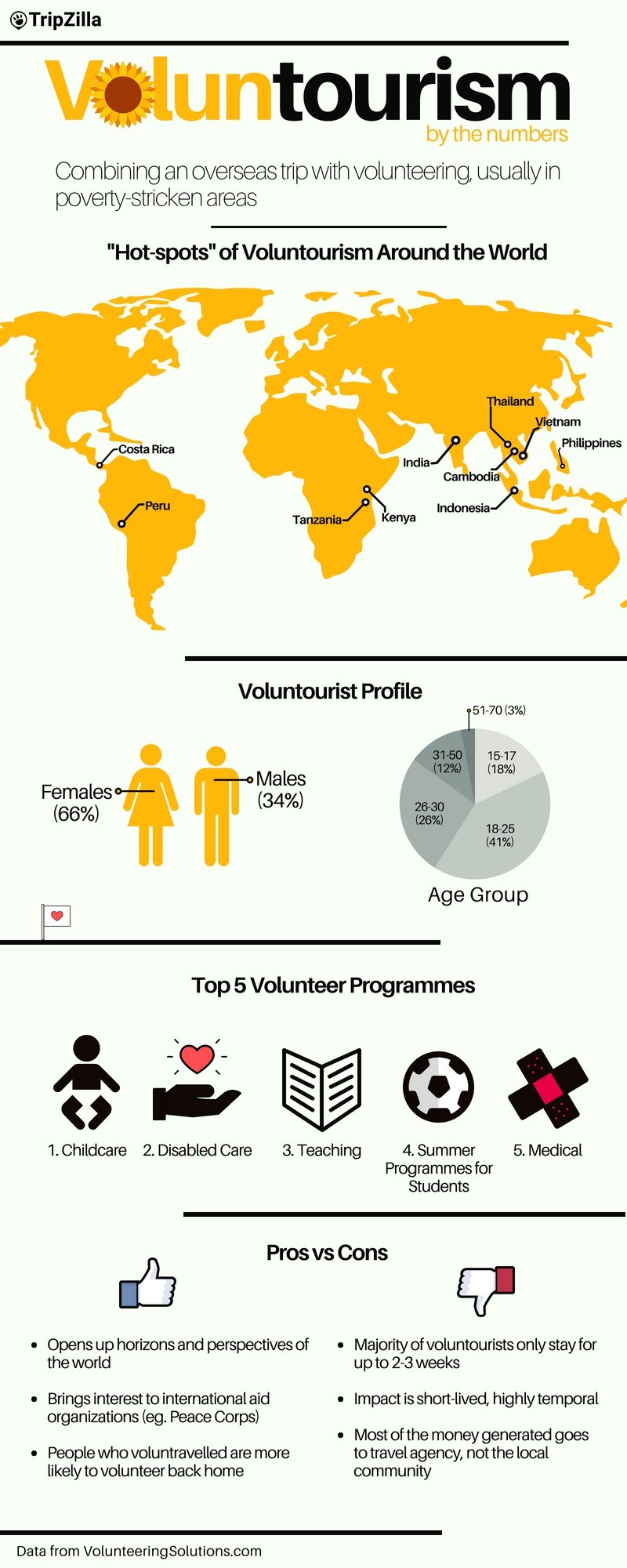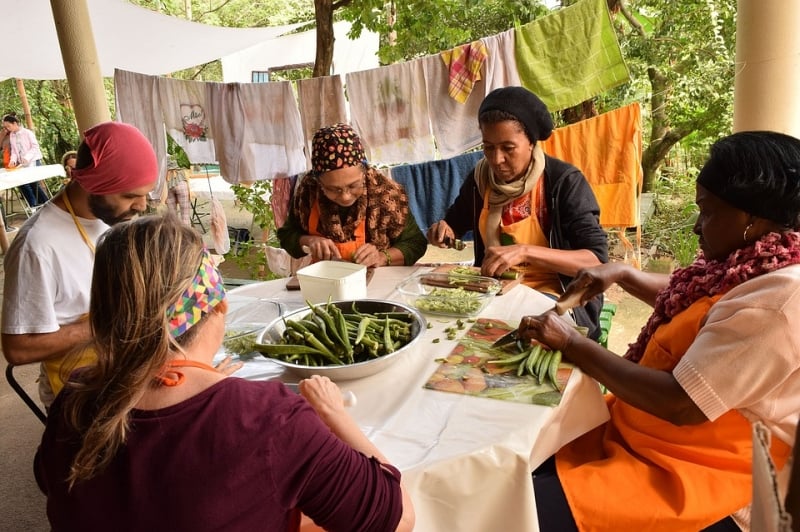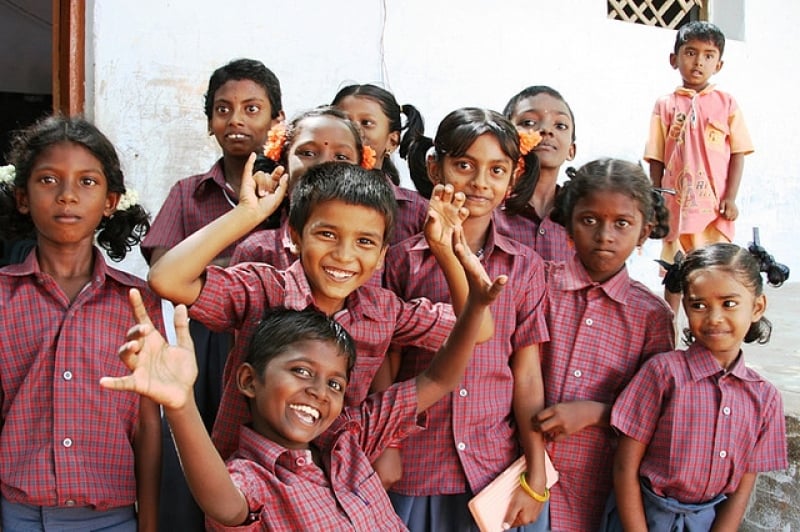For millennials in Singapore – as well as many around the world – a huge elephant in the room is acknowledging who the biggest gainers of voluntourism (think Overseas Community Involvement Programme) are.
Voluntourism, a portmanteau coined from the words volunteer and tourism, is an increasingly popular alternative to a normal vacation. It simply refers to when one combines an overseas trip with volunteering, especially in places of poverty.
The idea has been both celebrated and ridiculed, given praise as well as being made fun of. Now more than ever, people are embracing the term “voluntourism” in hopes that they are travelling for a good cause. Perhaps, many people fail to see that it might actually be more harmful than we think it is!

As we weigh the good and bad of voluntourism, it’s important to understand the driving forces behind it. It is easy to simply direct the blame to travel companies. By marketing voluntourism packages as an avenue to acquire life-changing experiences, these travel companies seem to propagate this concept as a rewarding one.
For students, these trips look incredibly attractive – being able to have leisure time and contribute to a community in need is killing two birds with one stone. Furthermore, some volunteer trips offer great incentives such as the chance to make a small profit or enjoy free accommodation in return. Beyond the vague desire to give back to society and despite proof that voluntourism isn’t in the best interest of local communities, there must be a reason why people are doing it anyway.
Perhaps, it revolves more around personal goals such as gaining a better perspective of the world we live in, advocating for basic human rights in these areas or simply craving for an adventure. While these are valid reasons, it is more important to take into consideration the opinions of locals and professionals who are familiar with that area to better understand what help is needed and why.
Here are some questions you might want to ask yourself before going on that volunteer trip!
1. Always keep in mind who you’re helping

Image credit: Charlie
Understanding the purpose of voluntourism is the first big step. Yes, we can be distracted by all the fun but at the end of the day, partaking in such activities involves actively committing our time and effort to help someone the less fortunate.
If the success of the trip is determined by how much you’ve helped yourself more than anything else, perhaps the wrong moral budget lines have been taken into consideration. Do so with others in mind and make sure you have something meaningful to contribute, not for selfish agendas.
2. Change your perceptions and market volunteering abroad

Buying into the hype is such an easy thing to do, especially when our role models encourage us to go for these life-changing trips. However, if the success and motive of the trip is always measured by the volunteers’ experience, the wrong side of the equation is being looked at. This will cause a vicious cycle that will always result in voluntourism to fail.
Instead, quantify how such trips can really benefit the community! It’s not about totally getting rid of opportunities for travel and adventures altogether, but the process of observing and studying local communities. These actions will ultimately lead to more sustainable development work and ensure the correct solutions are provided for different problems.
3. Most importantly, consider all outcomes and think through it properly

The prospect of travel is, of course, enticing but voluntourism should not be taken lightly. In fact, it is a heavy responsibility to undertake.
Do you really have the skills required to actually help locals in another country? Think hard about what you’re qualified to do or if you could actually be more of a help volunteering in your home country. In most cases, volunteers take way more time to build a house than local villagers for the simple reason that they have no experience.
4. Maybe volunteering is not the best option for you after all?

If you’ve come to realise that volunteering might not be your cup of tea, fret not! There are many other ways to help communities abroad that may not leave as many negative consequences as voluntourism.
Why not live with a host family or pick up a language course when travelling? Or even better, find an NGO or well-established development organisations for more responsible volunteering opportunities. Take comfort and know that you’re in good hands and surrounded by people who are familiar with the situation on the ground.
Final thoughts: Lesser of two evils?

This article is not meant to belittle the worth voluntourism can entail. There are plenty of occasions when contributing overseas can result in very positive outcomes. If you possess specialised skills not found in that community and you believe you have a great reason to offer assistance, then go for it!
Don’t forget to do a background check on the programme provider and host organization you’ll be involved in. Keep in mind: training a local is similar to teaching a man to fish. Sharing your knowledge and skills will have a more long-lasting and meaningful impact.
As we continue to justify and balance the good and bad of voluntourism, it’s important to keep the conversation alive. Yes, it’s easier said than done but discussions about voluntourism should be constructive rather than suffocating. The student who wishes to broaden his horizons or the retiree who dreams of trying something new should not be paralyzed by the discussion and avoid volunteering totally. Instead, gather different opinions and decide what is best for you, and more importantly, for the community you wish to help!




